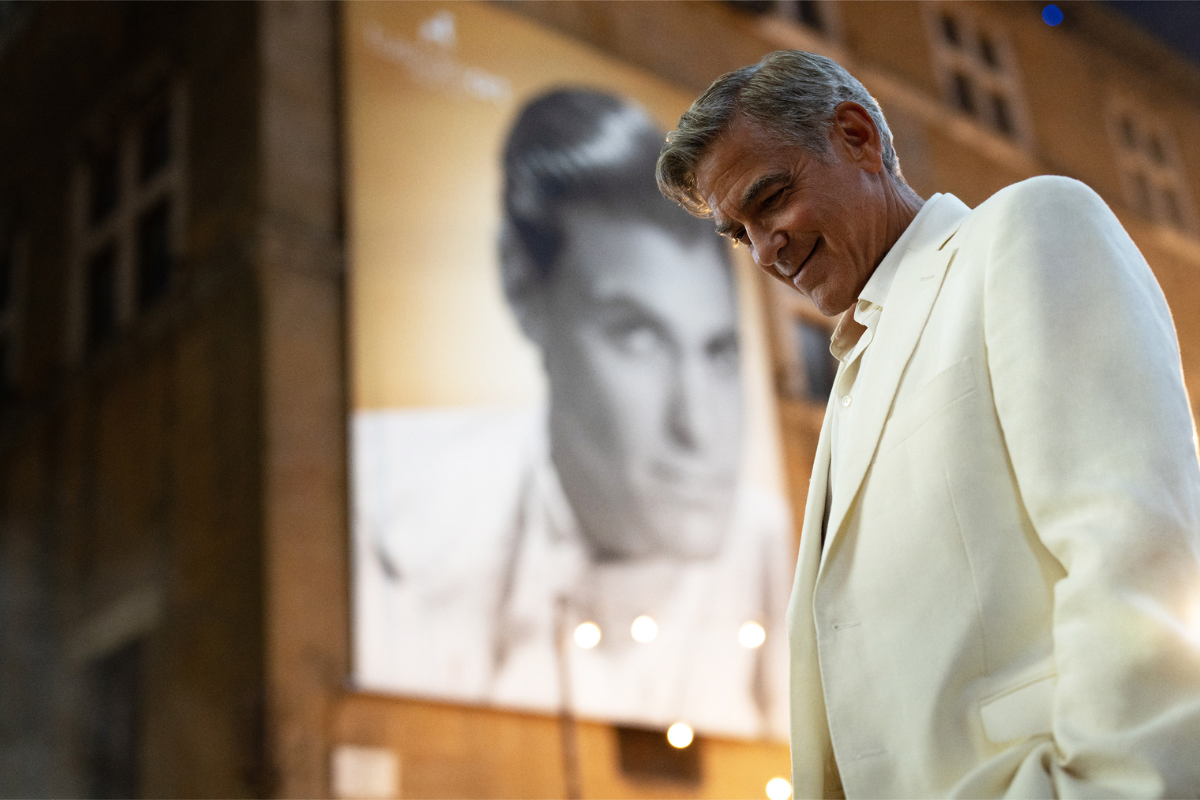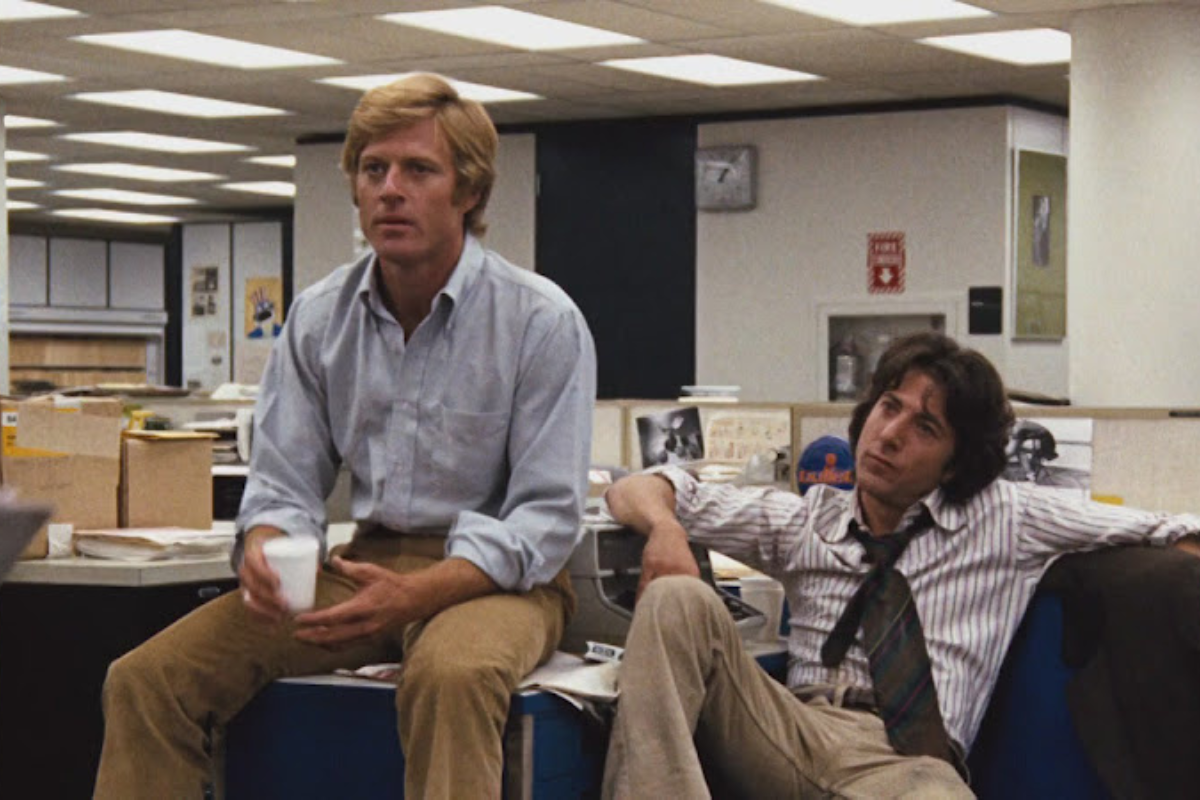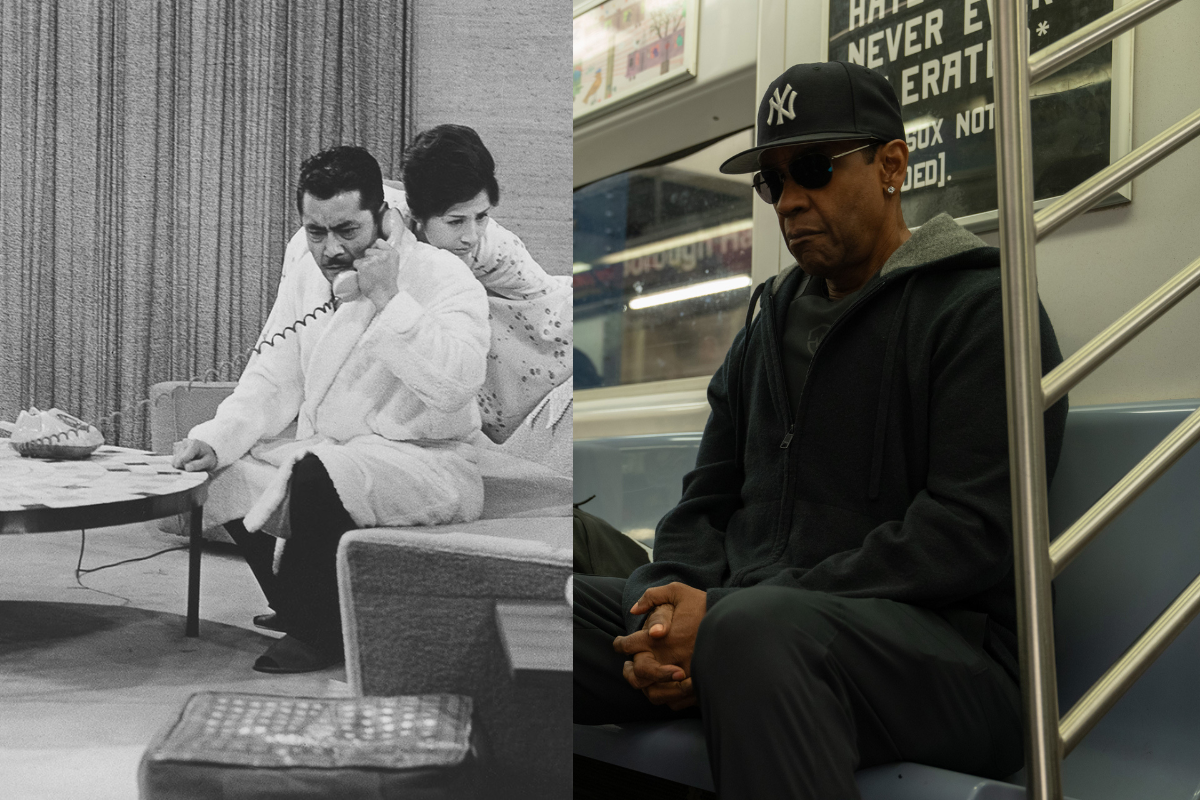UNDERSTANDING SCREENWRITING: Love and Cars
The films are: ‘Materialists,’ ‘F1: The Movie,’ ‘Elio,’ and ‘Sorry, Baby’.
If I Told You…
Materialists (2025. Written by Celine Song. 116 minutes)
If I told you that Materialists was one of the most intelligent American movies ever made about love, would you just skip it and go see another summer blockbuster action flick?
I hope not. You can learn a lot about love, romance, attraction, and money in Materialists. Come on, we all need to learn more about any or all of those subjects. And it should not surprise you, since it is made by Celine Song, who wrote and directed the great film from two years ago Past Lives. You might want to go and read my review of that film here before you continue with this review. Or maybe not.
Both films deal with threesomes (not sexual but amorous). In Past Lives, the threesome is a Korean boy, a Korean girl, and the American man she marries. It is developed with great nuance. Materialists is not quite as nuanced or as good as Past Lives, but given that it is set almost completely in the world of the Upper Classes in New York, that is not surprising. So we are in a setting that we have seen a lot of in romantic comedies going all the way back to the 1930s. Also, the ending of Past Lives is not as conventional as the ending of Materialists, which some critics have complained about. Song may have been aware of that and struggles perhaps a little harder than she had to to make it work. I think she makes it, more or less.
Lucy (perfectly played by Dakota Johnson, a leap ahead of some of the films she has done lately) is a high-level matchmaker at a very high-level matchmaking firm Adore. So we get a lot of discussion with Lucy and a lot of clients and would-be clients on what they are looking for in a partner. Song’s dialogue, always a strong point in her films, shows her background as a playwright. It is very precise and detailed and revealing about the attitudes of the people she is dealing with. You will cringe at many of the things both the men and the women say. You may know people who think like these folks do. You may also think like they do.
At a wedding reception for a former client, she meets Harry. He is, as Lucy and the women in the office describe him, a unicorn, .i.e., a perfect man. He checks all the boxes: tall (Song gets a lot of mileage out of women wanting tall men, with a great payoff later), rich, great looking (he is played by Pedro Pascal, perfect casting), and other virtues.
At the reception, she also runs into her former boyfriend, John (played by Chris Evans, who is no Pedro Pascal, but he ain’t chopped liver). John and Lucy were struggling actors once, and he still is. Harry has a gorgeous apartment, and John lives with three of the slobbiest roommates you can imagine.
Lucy dates Harry and checks in with John from time to time. In a conventional romantic comedy, you can see where it’s going and you think this one is not going there. Well, see for yourself what happens.
One thing that put me off in the first part of the film was that the pacing seemed rather slow. You and I are more used to romantic comedies that zip along, bubbling and sparkling all the way. Song is taking her time, which I think ultimately works for her. You may feel differently.
If you want to write romantic comedies, you will still want to see, and more importantly, listen to this film to see how one of the modern masters does it.
The Great Grandson of Grand Prix.
F1: The Movie (2025. Screenplay by Ehren Kruger, story by Joseph Kosinski & Ehren Kruger. 155 minutes)
The 1966 film Grand Prix was filmed in Cinerama (the one-camera version instead of the earlier three-camera version), the IMAX of its day. Cinerama was wider than IMAX, which made it great for a movie about Formula One racing. No drone shots, but plenty of helicopter shots.
Most of the critics complained that the script for Grand Prix was not all that good. The story and screenplay were credited to Robert Alan Aurthur, but since we had no IMDb in those days we did not know as we “know” now from IMDb that the film’s director, John Frankenheimer, did uncredited writing, and William Hanley also did uncredited writing and Bill Gavin, uncredited, wrote the commentary. If you have read this column long enough, you know that I am dubious about a lot of the “uncredited” writers IMDb lists.
In the case of Grand Prix, I think they have a point. A UCLA classmate of mine in the late sixties had read Aurthur’s script and told me it was much better than the film. The classmate told me that Frankenheimer was much more interested in the cars than the characters. Thinking like a director, of course. The characterization was not nearly as sharp in the film as it was in Aurthur’s script. I suspect the rewriting by Frankenheimer and Hanley simplified the characterizations as not to draw attention from the racing scenes. And the racing scenes are terrific.
Grand Prix follows multiple characters, the drivers and their wives and girlfriends. It has an all-star cast including James Garner, Eva Marie Saint, Yves Montand, and Toshiro Mifune. They do what they can with the material, but it is not enough.
The script for F1 is simpler. We follow one team, the APX team, which has not only been losing races, but coming in way down on the leader board. Ruben, the head of the team, seeks out his old friend Sonny Hayes, who years ago dropped out of Formula One racing. Sonny is now in his fifties (played by Brad Pitt, who just turned sixty and can still pass for fifty) and his rival on the team is Joshua Pearce, a young hotshot driver. Hum, older experienced guy dealing with hot shot newcomers. Didn’t we see that three years ago in Top Gun: Maverick? We did indeed. That film was co-written by Ehren Kruger and directed by Joseph Kosinski. So Kruger and Kosinski know the game they are playing.
Kosinski is more interested in character than Frankenheimer was in Grand Prix (in other pictures, he was much better with characters: All Fall Down [1962], The Manchurian Candidate [1962], and Seven Days in May [1964]). Kosinski gets a lot out of his supporting actors, and as he showed in Top Gun: Maverick, he can get the most out of a BIG star. I have written before that you never can tell whether Brad Pitt the movie star or Brad Pitt the actor will show up. For most of this film, Brad Pitt the movie star is perfect for the role of Sonny. Then in a later scene, he tells the technical director and car designer why he dropped out of Formula One racing, and Brad Pitt the actor shows up and makes his speech pay off.
One of the only weaknesses in the cast is Damson Idris as Pearce, the hotshot kid. The part is very conventional and we have seen it many times before. Idris just cannot hold his own up against Pitt. But then who can?
Well, Javier Bardem for one. He plays Ruben and he more than holds his own with Pitt, especially in their early scenes where Ruben is desperate to get Sonny back into Formula One racing.
The technical director here is Kate, nicely played by Kerry Condon. Yes, a woman technical director. It is 2025, not 1966. Condon gets a beautifully written speech on how and why she never sleeps with any of the crew. I hoped she would stick to her guns, but, well, he is BRAD PITT after all.
One thing that Frankenheimer did do better than Kosinski does was vary the races visually. In F1, they all tend to look alike. We get some shots of the location, then the race. In Grand Prix, the races are different. The opening scene is the spectacular Monte Carlo race, with a terrific accident. One race is in the rain, with a great score by Maurice Jarre. The music in F1 is by Hans Zimmer and it pounds away at your ears. Kosinski does not do as much with the great track at Monza as Frankenheimer did. Look at both of the films and see what you think.
An Historical Moment.
Elio (2025. Screenplay by Julia Cho & Mark Hammer & Mike Jones, Story by Adrian Molina & Madeline Sharafian & Domee Shi & Julia Cho, additional screenplay contributions by Jesse Andrews & Hannah Friedman. 98 minutes)
This is a film made by Pixar, one of the greatest, maybe the greatest animation studios of all time.
It opened in June and became the Pixar film with the lowest opening weekend gross of all time. Its weekend gross was just under $21 million. OK, that is real money to you and me, but to Hollywood, especially on a picture that had an approximate budget of $150 million dollars, that’s bad news.
What happened? The smarty pants answer is that it takes a bunch of geniuses to make something this bad. But it is not a terrible movie, just one that does not work.
The problem starts with the script (of course, you expect me to say that, but it’s true). Elio is a young boy who feels alone in the world. His parents have both died (so this is not just another Disney dead mother movie), and he is being taken care of by his aunt, Olga, a major in the Air Force. Now you may be thinking, well, that worked last month in Lilo & Stitch, and it certainly did. But Lilo and her sister Nani are much livelier characters than Elio and Olga. When Lilo is on screen, stuff happens.
Well, some stuff happens to Elio, but it is not very compelling because he is not very compelling. He gets zoomed up into the universe, where he meets a lot of creatures who are nicely drawn, but not nicely animated. Compare this crowd with the toys in Toy Story (1995). The world of the universe by itself is not enough to carry the picture without the characters to pull us into it.
The traditional way filmmaking has worked at Pixar is that the creators talk to what used to be called “the brain trust,” which now seems to be called the “senior creative team.”
So the easy answer to what went wrong is that neither the creators nor the senior creative team seemed to see the problem. But this is not an unusual situation in creative work. The people working on the project and the senior team believe in the project and believe it is working. You will find this happens to you when you are writing a screenplay that you think is wonderful and it just does not work. You might want to get your own senior creative team.
Of course, it could have been that the various supervisors simply disagreed. Look at the writing credits. There may just have been too many cooks spoiling the broth, without somebody high enough to bring the broth into something more edible.
On the other hand, the picture opened shortly after Lilo & Stitch opened and made money by the truckful. Maybe the film will eventually break even. I would not bet on it, but stranger things have happened.
I Had a Great Snarky Sub-headline For This One, But Then I Saw the Movie.
Sorry, Baby (2025. Written by Eva Victor. 105 minutes)
I saw the trailer for this film and it seemed to me from the trailer that the two leading characters, Agnes and Lydie, were lesbian lovers, since they cuddle up together a lot. At the end of Pride month, TCM ran one of the classic lesbian films, Go Fish, which I first saw when it first came out in 1994. Lesbians before Go Fish had generally been portrayed on screen as psychopaths, usually in smaller supporting roles who kill themselves when they can’t get the man of their choice.
Go Fish, shot in black and white on a nothing budget, changed all that. The characters were all lesbians and they were a cheerful, funny bunch - it was enjoyable to hang out with. And the leading lady ended up with the girl she wanted to. Many of the women who worked on that went on to have good careers.
So I watched Go Fish the night before I saw Sorry, Baby, and figured my snarky sub-head for this review would be “The daughter of Go Fish.” But Sorry, Baby opens with a scene where Lydie comes to see her old friend Agnes five years after they were in college together. They are friends, great friends, both emotionally and physically, but not sexually. Lydie is now married and tells Agnes she is pregnant. So no indication that a turkey baster was involved.
The film, which is told in non-chronological chapters, next goes back five years. Agnes’s professor, Decker, a handsome older man, thinks her writing is “extraordinary,” and asks her to come to his house to discuss it. She goes into the house and the camera stands still as night falls and then dawn comes up. Victor, who also directs and plays, brilliantly, Agnes, does not want to dwell on the physical act of assault as so many films about rape do. This film is about the aftermath, what Agnes does, does not do, and how she deals with the event. She and Lydie see a male doctor, who is not the soul of sympathy, although you can understand why he says things he does. Agnes talks to two women from Human Resources at the college, who keep reassuring her that they understand because, “We are women.” One does not feel their sympathy. The college cannot now do anything about it because Decker turned in his letter of resignation before the night at the house.
The remaining chapters deal with Agnes’s recovery, which is slow and often unnerving for both her and us. Victor’s writing, especially the scenes between Agnes and Lydie, is wonderful, subtle, touching, and funny. Victor has created a relationship between the two that is so intimate that both characters are on the same page when they are together.
Victor also writes great supporting characters. In the second to last chapter, Agnes meets Pete, who runs a café. He sees that she is very upset (she just had a meeting with Natasha, an acquaintance who hates Agnes, and who also had a fling with Decker). Pete is the friend you have never met who is perfectly willing to listen to your problems and give you good advice. He is played, in one of his great performances, by John Carroll Lynch. You have seen him funnier, but never as good.
Ah, one other thing. In the final chapter, a year or so after the first one, Lydie shows up at Agnes’ with her baby. And her…husband. Who is very thin. And wears an earring. Maybe there was more to the Agnes/Lydie relationship than Victor is telling us. Or Victor is telling us in the subtle way she does everything else in the script. Your guess is as good as mine.
Tom Stempel is a Professor Emeritus at Los Angeles City College, where he taught film history and screenwriting from 1971 to 2011. He has written six books on film, five of them about screen and television writing. You can learn more about his books here. His 2008 book Understanding Screenwriting: Learning from Good, Not-Quite-So- Good, and Bad Screenplays evolved into this column. The column first appeared in 2008 at the blog The House Next Door, then at Slant, and then Creative Screenwriting before it found its forever home at Script.
In the column he reviews movies and television from the standpoint of screenwriting. He looks at new movies, old movies, and television movies and shows, as well as writing occasional other items, such as appreciations of screenwriters who have passed away, plays based on films, books on screenwriting and screenwriters, and other sundries.
In September 2023 Tom Stempel was awarded the inaugural Lifetime Achievement in the Service of Screenwriting Research by the international organization the Screenwriting Research Network.







